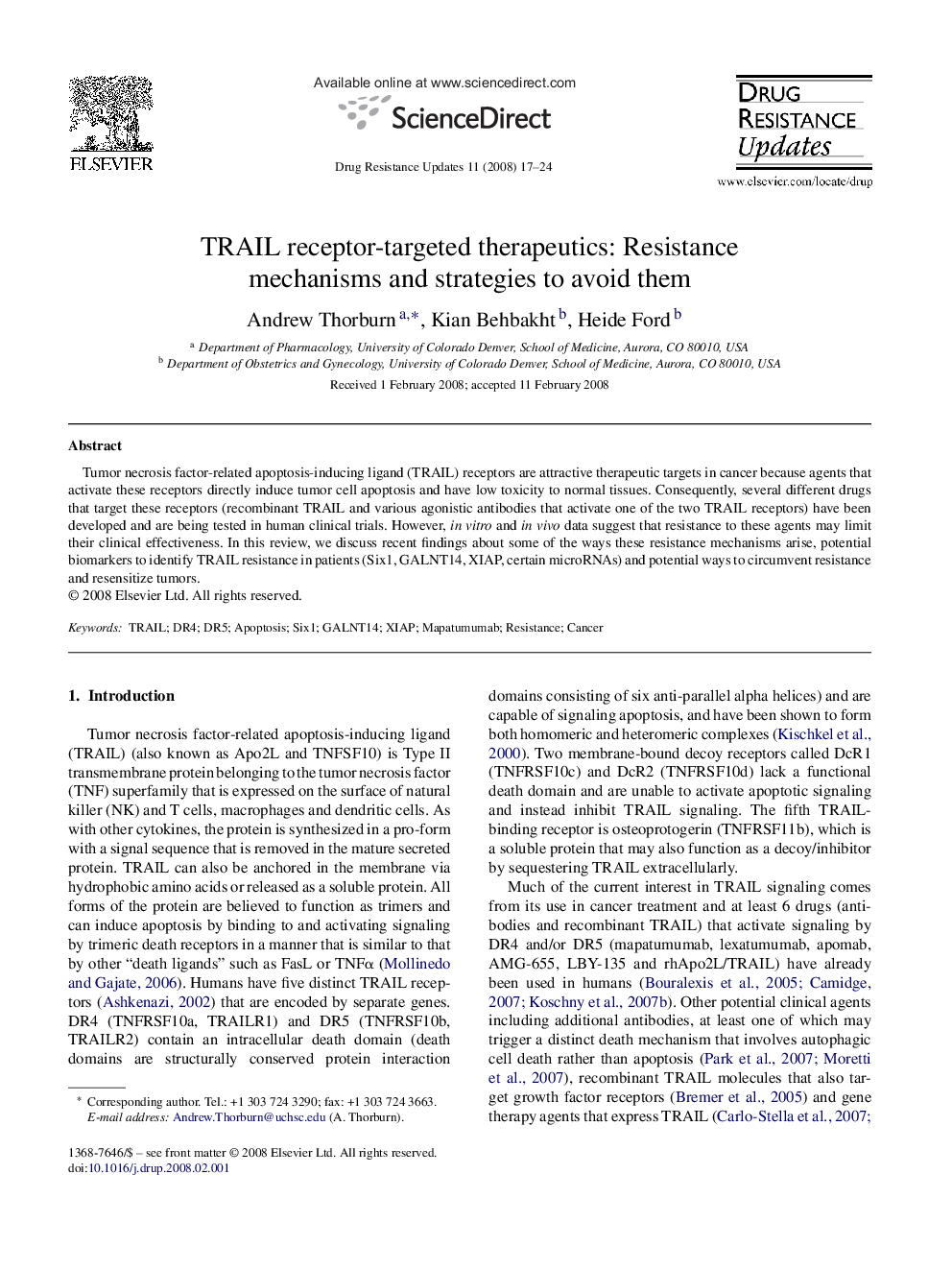| Article ID | Journal | Published Year | Pages | File Type |
|---|---|---|---|---|
| 2120382 | Drug Resistance Updates | 2008 | 8 Pages |
Tumor necrosis factor-related apoptosis-inducing ligand (TRAIL) receptors are attractive therapeutic targets in cancer because agents that activate these receptors directly induce tumor cell apoptosis and have low toxicity to normal tissues. Consequently, several different drugs that target these receptors (recombinant TRAIL and various agonistic antibodies that activate one of the two TRAIL receptors) have been developed and are being tested in human clinical trials. However, in vitro and in vivo data suggest that resistance to these agents may limit their clinical effectiveness. In this review, we discuss recent findings about some of the ways these resistance mechanisms arise, potential biomarkers to identify TRAIL resistance in patients (Six1, GALNT14, XIAP, certain microRNAs) and potential ways to circumvent resistance and resensitize tumors.
